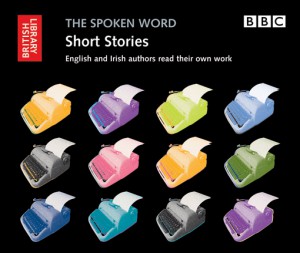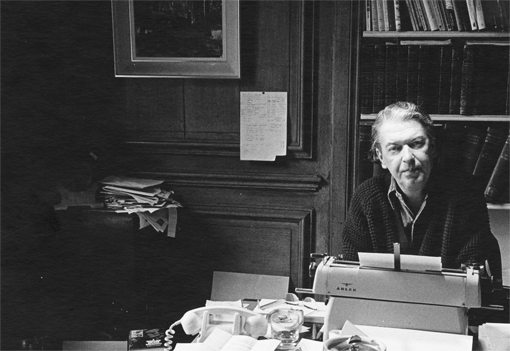2012. GB. CD. 218 minutes. British Library (Spoken Word series). ISBN: 9780712351102. Price: £20.36
 About the Author: Dr Alexander Beaumont is a Teaching Fellow at the University of York, where he teaches contemporary British and American literature. He has taught creative writing to mature learners in the past, and is currently writing a monograph on representations of the city in British fiction since 1987.
Tel: 01904 323331
E-mail: alex.beaumont@york.ac.uk
About the Author: Dr Alexander Beaumont is a Teaching Fellow at the University of York, where he teaches contemporary British and American literature. He has taught creative writing to mature learners in the past, and is currently writing a monograph on representations of the city in British fiction since 1987.
Tel: 01904 323331
E-mail: alex.beaumont@york.ac.uk
Despite the best efforts of Granta and Prospect, and an annual £15,000 award sponsored by the BBC, the short story remains a marginal form in Britain. This is less the case across the Atlantic, where it still - arguably - retains some importance. Novels such as Jonathan Franzen’s Freedom (2011) might forge the cultural debate in the USA, but it continues to be the case that, to a far greater degree than here, American writers cut their teeth writing short stories. Consequently, the influence of the form is noticeable across US fiction, as practitioners often demonstrate an economy directly attributable to their training. While David Guterson may have won the PEN/Faulkner Award for the novel Snow Falling On Cedars (1994) it’s fairly easy to identify the origins of his storytelling skills in the fabulous collection The Country Ahead of Us, The Country Behind (1989). Far from representing an apprenticeship, however, this book stands on its own as a creative document replete with keenly observed moments of emotional insight that are expressed with a crisp reserve difficult to identify in fiction from the UK.
Perhaps this situation is in the process of changing. High-profile novelists such as Kazuo Ishiguro and Colm Tóibín have in recent years published well-received collections of short stories, and the ever-rising interest in creative writing programmes could contribute to a renaissance of the form almost by default. While many such courses focus on the novel, this can be a tricky form to accommodate within a two-hour workshop; the short story thus represents an appropriate way of encouraging students to critique each other’s work while keeping to a university schedule. In any event, it’s the most effective tool for demonstrating the maxim ‘show, don’t tell’ and getting students to let their verbs - not their adjectives - do the work.
 Instructors seeking resources for such programmes would be well-advised to consider a new collection of recordings published by the British Library entitled Short Stories: English and Irish Authors Read Their Own Work. It comprises material primarily from the middle of the twentieth century written by authors as various as Phyllis Bentley, Kinglsey Amis and Angela Carter. And this variety - along with the variety in subject, tone and success of the stories themselves- identifies the collection’s potential as a pedagogical tool. There is something delightful in hearing authors read aloud in the voices that (presumably) influenced their stories as they were writing. However, the diversity of the material here means that casual listeners are unlikely to find themselves entertained consistently across four hours.
Instructors seeking resources for such programmes would be well-advised to consider a new collection of recordings published by the British Library entitled Short Stories: English and Irish Authors Read Their Own Work. It comprises material primarily from the middle of the twentieth century written by authors as various as Phyllis Bentley, Kinglsey Amis and Angela Carter. And this variety - along with the variety in subject, tone and success of the stories themselves- identifies the collection’s potential as a pedagogical tool. There is something delightful in hearing authors read aloud in the voices that (presumably) influenced their stories as they were writing. However, the diversity of the material here means that casual listeners are unlikely to find themselves entertained consistently across four hours.
This is not to imply that the items are haphazardly arranged. Broadly speaking, the three CDs cover, respectively, the terrors and disappointments of growing up, the surreal and uncanny, and the magical and/or fabulous. And while some are disappointing both in content and delivery - Somerset Maugham’s uninspiring ‘Salvatore’, for instance, or Edna O’Brien’s ‘The Small-Town Lovers’, which is spoken in a plodding semi-whisper that quickly grows irritating - there are some real gems. These are mostly the more conversational pieces, such as Frank O’Connor’s ‘The Idealist’ and Seán Ó’Faoláin ‘The Fur Coat’; however, Harold Pinter’s clipped reading of ‘Tea Party’ deserves mention as an object lesson in how delivery can heighten the tone - ominous, in this case - of any story.
Click here for Kingsley Amis audio clip (© BBC)
Most of the recordings here appear to have taken place in the studio, which is a shame since it minimises the sense of public reading as a literary event and a performance. An exception is the final piece: William Trevor’s ‘An Evening with John Joe Dempsey’. The laughter that punctuates this reading and the applause that concludes it are a manifestation of the value of the short story as a discrete entertainment that can be enjoyed in a single sitting. And I don’t doubt that Trevor’s narrative would persuade any student of the considerable value of the form, which deserves all the earnest and varied engagement on display in this collection.
Dr Alexander Beaumont
Tel: 01904 323331 E-mail: alex.beaumont@york.ac.uk
